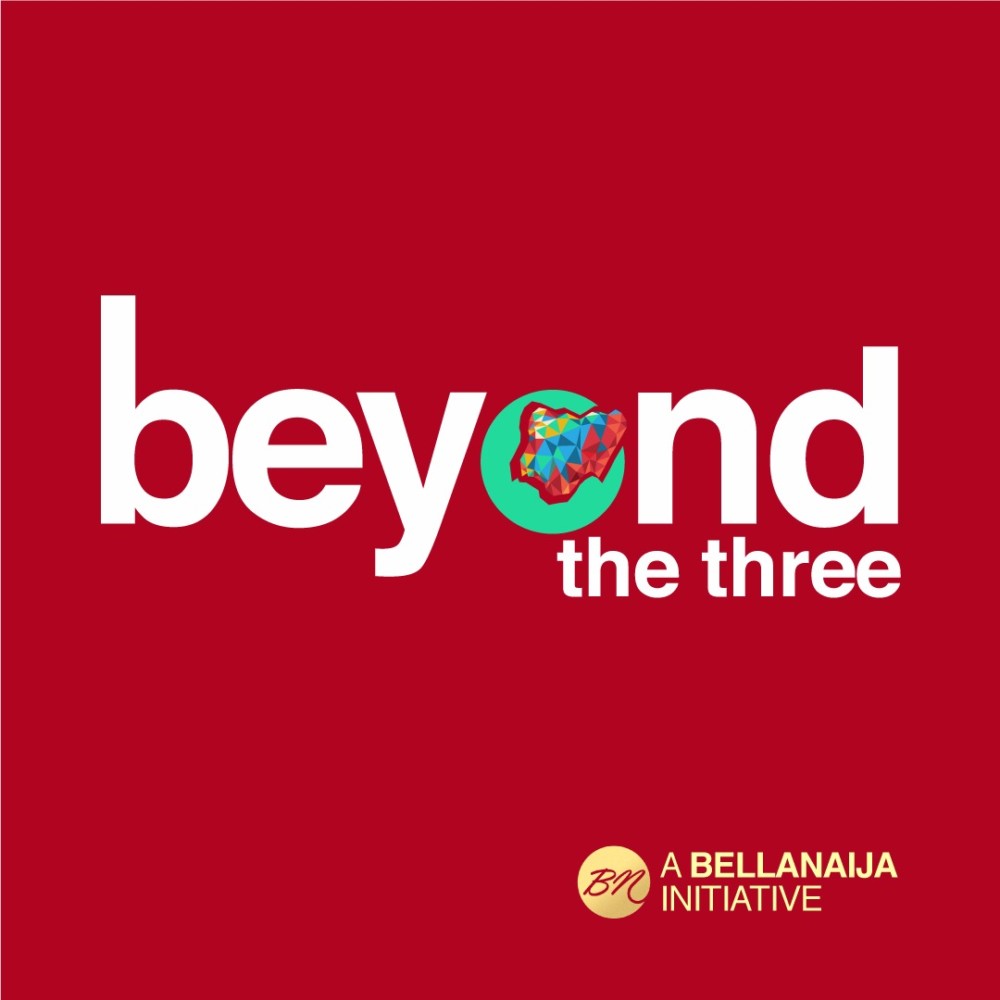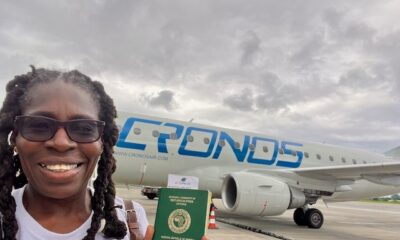Features
Beyond The Three: ‘Avugna Vugna’- Jerry Spotlights the Strength of the Mafa People in Borno & Adamawa States
The Mafa people are of very noble character, however, drinking alcohol is like a tradition to them – which I don’t like. They also believe so much in farming, and this hinders them from thinking outside the box.
 Beyond The Three is a series on BellaNaija where we celebrate and spotlight every tribe and ethnic group that is NOT Yoruba, Hausa or Igbo. We invite ALL BellaNaijarians to be a part of this initiative.
Beyond The Three is a series on BellaNaija where we celebrate and spotlight every tribe and ethnic group that is NOT Yoruba, Hausa or Igbo. We invite ALL BellaNaijarians to be a part of this initiative.
In the first edition of this series, we were introduced to the Idoma people; this was followed by the Esan people. Joan introduced us to the Oegorok people and we learned about the Mhiships from Mwanret. Ma’ade told us about the Bassa people. We had the pleasure of reading about the Uwano people of the Weppa Wanno kingdom. We were taken to Langtang to meet the Taroks, thanks to Tanchit. Moses provided us with insight into the Isoko people. Nhaoma shared the Ikwerres with us. We’ve also met the Bwatiye people, thanks to Kada, and the Yandangs, courtesy of Lynda. Following that, Kandyi introduced us to the Fantswam people.
In this episode, Jerry Nduvna introduces us to the Mafa people. Also called Mafahay, Mafa is an ethnic group localized in Northern Cameroon, Northern Nigeria and also scattered in other countries like Mali, Chad, Sudan, Burkina Faso, and Sierra Leone.
Meet Jerry
My name is Jerry Nduvna from Gwoza Local Government Area Borno State. My name, Nduvna, means ‘the final answer to all circumstances’. My language is Mafa and I speak it fluently.
The Mafa tribe
Mafa (Maffa) can be found in 2 Northern states of Nigeria (Adamawa and Borno State). In Adamawa State, Mafa can be found in 4 Local Government Areas, which are Madagali, Mubi, Hong, and Michika L.G.A. In Borno State, Mafa can be found in 4 Local Government Areas, which are Bama, Konduga, Mongonu, and Gwoza L.G.A The Mafa tribe is not that known because they never bother to go into politics, they only focus on their business and farm. The Mafa belongs to the Chadic language grouping.
The unique rites and cultures of the Mafa people
Hospitality
Mafa people are very simple and accommodating, they believe that a visitor/guest is a blessing to them.
The Mafa Wedding
This is a stress-less ceremony. Once the couple agrees to get married to each other, the father of the boy can now approach the girl’s parents to properly show interest in their daughter. If the girl’s parents accept their proposal, then the parents of the boy can proceed to pay the girl’s bride price and some other traditional requirements which are compulsory – such as Mugwudi and a big ram.
Alternatively, the boy and girl can run away. This is also part of the tradition.
Food
The Mafa food is the finger millet and the soups are Mokotub, Kileb, Mishi, Shasheb, and Lak Baldav. Mokotub is the highly recommended soup among the Mafa soups which is mostly served to kings or elders in any Mafa ceremony and also to visitors. Mokotub is said to be the most delicious soup amongst all the Mafa soups, and that is why the Mafa people don’t joke with Mokotub.
Mokotub is a very simple soup to prepare when you have your groundnuts, dried fish, enough meat, a little spinach, pepper, and other necessary ingredients for soup.
Funeral
When a person dies in Mafa land, youths will dress in our cultural attire to mourn the deceased. Before a deceased is granted funeral rites, his/her family members and friends must meet to plan the event. Execution of their plan starts immediately after the meeting. Drinks and Pap will be bought. However, this is mainly done by my clan – Vreke. Other clans, like the Zhelehi, Gaibihi, Zaruahi, and Gwadalai have their various burial rites.
The best and the not-so-good part of the Mafa people
The Mafa people are of very noble character, however, drinking alcohol is like a tradition to them – which I don’t like. They also believe so much in farming, and this hinders them from thinking outside the box.
What you should know about the Mafa language and culture
It’s so simple, sweet and makes a whole lot of sense. I wish the whole world could speak my language and I also wish the world would know about our annual event which is called Marai.
The common Mafa proverb
Avugna Vugna – Unity is strength.
Thank you so much, Jerry. We appreciate you taking time to talk to us about the Mafa people. BellaNaijarians, find out more about the series HERE. Click HERE to read more entries in the series. If you enjoyed reading Jerry’s description of the Mafa people and you’d like to share about your culture and traditional practices with us, please send an email to submissions(at)bellanaija(dot)com. Remember, the only criteria is to be from an ethnic group that is not Yoruba, Hausa or Igbo.






















